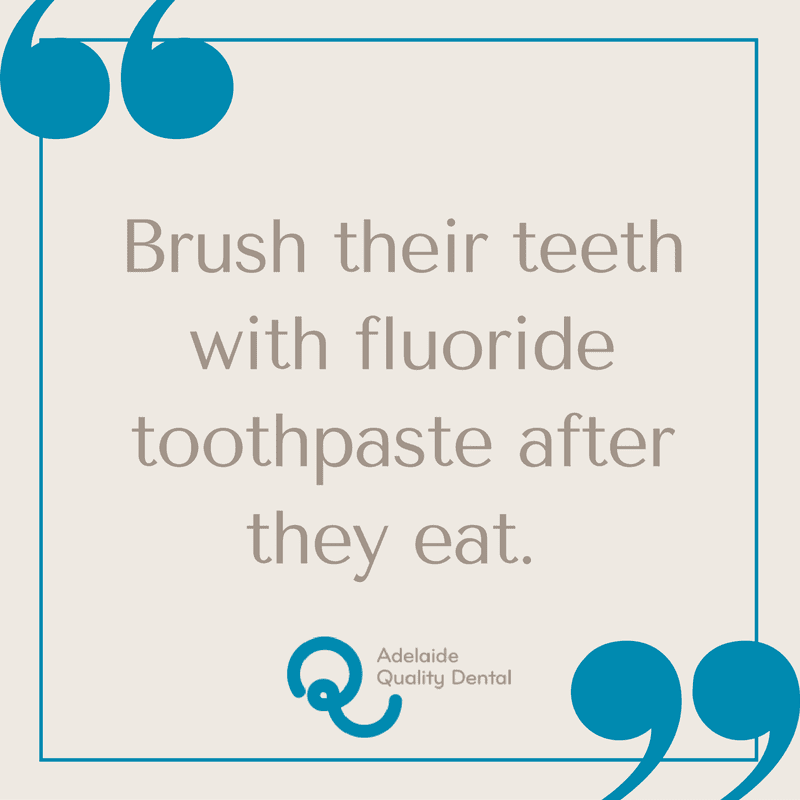Sugar: Kids At High Risk Of Tooth Decay
July 18, 2019
Are you falling into the sugar trap?
Are you falling into the sugar trap?
“I don’t let my kids have fizzy soft drinks. They have fruit juice or cordial instead.”
“Their lunchbox has healthy stuff like muesli bars, dried fruit and flavoured milk.”
“My kids get a sweet treat during the day if they’ve been good.”
As a parent, you often think you’re making healthy choices for your kids and saying no to sugary foods and drinks because they’re not great for their teeth (or waistlines).
So then why is it that, according to a Child Dental Health Survey, nearly half of six-year-old children in Australia have decay in their baby teeth? And, sadly, why are some toddlers – as young as 18 months old – going into hospital to have a mouthful of black, rotten teeth pulled out?
The answer, according to Australian health experts and dentists, is SUGAR. Here, we explain how the sweet stuff leads to tooth decay and simple ways you can make changes to what your child eats and drinks to protect them from tooth decay.
The real culprit that causes tooth decay is actually plaque – not sugar. If you haven’t brushed your teeth all day (or more!), you might feel a soft, sticky film has built up over them – that’s plaque.
In plaque are millions of bacteria that love the sugars in your food – not only the refined sugars found in unhealthy food (biscuits, lollies, soft drinks), but also the ‘simple sugars’ or carbohydrates found in healthy food (bread, vegetables, fruit).
Like us, bacteria get an energy kick from these sugars – and make acids that eat away at the tooth enamel. If you don’t remove the bacteria every day with brushing and flossing, the acids keep attacking. After a while, the acid breaks down the tooth’s surface, resulting in a dental cavity. Now your child is off to the dentist with a hole in their teeth to have a filling or, worse, that sweet tooth has to come out! So while sugar isn’t the direct cause of tooth decay, you can see it plays a harmful role.
While studies confirm that sugary food and drinks lead to tooth decay, many oral health experts are also looking at the ways we consume sugar and how they can increase our risk of a dental cavity.
The amount of sugar we eat isn’t the leading factor in causing tooth decay (although too much sugar can add up to other significant health issues such as obesity and diabetes).
When you eat sugar and for how long are just as important than what you eat. If you snack on sugary stuff between meals, it’s worse than only having dessert after dinner then brushing. This is because your teeth are exposed to acid-causing bacteria for longer.
The form and composition of sugary foods, sticky sweets for example, may be critical.
The type of sugar may play a part – whether it’s refined sugar (soft drinks, confectionery) rather than food containing ‘simple sugars’ (carbohydrates) like wholegrains.
Sugar is in almost everything you eat and drink, so how do you avoid little sugar addicts – and the risk of tooth decay? What age can your child have some?
A can of Coke contains around 10 teaspoons of sugar – would you put that in your baby’s bottle? Paediatricians recommend a zero-sugar diet for at least the first year – the longer you can hold it off, the better for your child’s budding teeth and development.
By now, your Little Miss or Mr might have experienced the delicious joy of ice-cream for the first time, but limit foods with added sugar. Around half or more of their food should come from good-source carbohydrates like wholegrains and vegetables.
With ‘big school’ comes more sugar pitfalls, lurking in lunchboxes and tuckshop. Avoid packaged, grab-and-go foods and get clued up on nutritious, low-sugar foods, but don’t ban sweets – save them for special occasions like birthday parties. Like any yo-yo dieter, if you deprive your child of those cupcakes completely, they’ll only want them even more and may binge when they can.

Want to talk more about sugar and your child’s teeth? At Adelaide Quality Dental, we encourage our little patients to avoid tooth decay with healthy eating and drinking, as well as regular dental cleans.
If it’s time for your child’s check-up please contact us to book an appointment now.
Call us on (08) 8346 3940 or get in touch via our contact form.